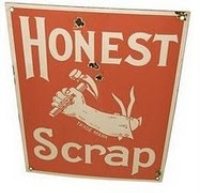I remember that when I first got diagnosed with stage 3 lung cancer, I worried that I would lose my hair. "That's such a little thing," my mother scolded me. "The hair will grow back." But one of the first times I visited the cancer ward for a round of chemotherapy, I saw a young, extremely thin man coughing into a handkerchief. He was not only bald but also had no eyebrows or eyelashes. I felt sorry for him, but I also tried not to cry, thinking that I would soon lose my hair too.
I didn't. "You have enough hair for three people," more than one hairstylist told me. My hair is long and thick, and even after multiple rounds of chemo, I still have all of it. Or I may have lost some hair, but since it's so thick, I didn't really notice.
I remember that my doctors told me, "You're younger than most of the other cancer patients. That could prove to be an advantage in your recovery." When I went to the cancer ward for chemo every three weeks, as well as to receive fluids through an IV twice a week for three hours each time (the chemo was bad for my kidneys, which is why I had to receive fluids), I noticed that most of the patients were decades older than me. One old man sat next to his wife as she received chemo, and he held her hand for hours as she slept. All the patients looked so sad and scared, and I dreaded going to the cancer ward each time.
What I dreaded most was the lobectomy, a surgery where they would remove part of my right lung and the lymph nodes, the area where the cancer was. It was scheduled much sooner than I expected. I was in the hospital for five days. I remember being in the operating room on the day I had surgery, with the nurses and doctors moving around briskly. And then I remember waking up several hours later, being told that the surgery was over. "On a scale of one to ten, how would you rate your pain?" the nurses asked me.
"Twelve," I said, as I struggled to sit up in bed. Every time I sat up or even moved, it hurt like hell. A physical therapist had to help me walk for the first time after surgery; I could barely stand up, and when I did, I felt dizzy and tired. I had to use a walker the first time, and I kept wobbling as I walked.
I remember that it was difficult to sleep in the hospital. The nurses woke me up several times a night to give me medication and to take my vitals. During the day, doctors and nurses kept coming in and out, and the woman I shared a room with, who also had a lobectomy, kept complaining the whole time.
The lobectomy was successful. They removed the tumor. A few weeks after the surgery, my oncologist had me start taking Tagrisso, which is a targeted therapy for cancer patients; he described it as "oral chemo". It's a pill that I have to take every day for three years.
I took the spring semester off from teaching; fortunately, I had accumulated a lot of paid sick leave since I'd never taken a sick day since I first started teaching in College Town. I didn't want to take time off from my job because it was the only thing that made me feel normal when everything else in my life had turned upside down. But it was difficult to teach during my cancer treatment last semester. I started chemo last fall, and I felt nauseated after each round of chemo. I usually don't sit down while I'm teaching because I'm often writing on the chalkboard, and I move around the room as I talk. But because I felt tired and sick, I stayed seated most of the time. My students were understanding; they felt sorry for me, and one of them told me that they were praying for me. Another student gave me a card after the semester was over, and their classmate gave me a coffee mug and a card.
It was the right decision not to teach for the spring semester. I was in a lot of pain after the surgery; the surgeon said the pain would last for months, which it has. I ended up with a large scar on my body from where they operated on me.
The bad cough that lasted for months, which was what drove me to seek treatment in the first place and proved to be the first symptom of my lung cancer, went away after I started getting chemo. But after the lobectomy, I started coughing again. It's now been almost two months since the surgery, and I'm still coughing constantly. It's worse than before because due to the surgery, I still have pain on my right side from where they operated on me, so every time I cough, it aggravates the pain. My surgeon said the cough could last at least two more months and that it's a common side effect of a lobectomy because my body is adjusting to the fact that I am now missing part of my right lung. I often wake up coughing in the middle of the night. My oncologist prescribed me some cough medicine, but it doesn't help much.
I get winded more easily now; shortness of breath is another common side effect of having part of your lung removed. I used to be able to work out for hours at the gym at a time, and now I am out of breath just from climbing the stairs of my apartment building (there is no elevator). I feel tired almost all the time, even after getting a full night's sleep. I've lost weight because I struggle to finish meals; I just don't feel hungry most of the time. Food and drinks that I used to love, such as chicken tenders, Frappuccinos, and chocolates, now make me feel sick. My oncologist said that cancer affects your appetite and even your taste buds.
I remember that my oncologist ordered tests to be done on me once a month, to monitor my kidney function among other things because I have kidney disease. The most recent test showed that my kidney function has gone way down since last month. It was always expected that my kidney function would decline because that's a consequence of having polycystic kidney disease. But it's gone down quickly and significantly since I first started cancer treatment.
My nephrologist, who I met with recently, said it's most likely due to the cancer treatment, especially because the type of chemo they put me on was bad for the kidneys. But as I stated in my last post, he reiterated that I had to prioritize the cancer over my kidneys at the moment, which is why I had to take the risk with the chemo. He said that they would continue to monitor me. He thinks that my declining kidney function might be due to the Tagrisso pill that I have to take, and if it is, I'll have to stop taking it and take a different medicine. But Tagrisso has a high success rate of enabling cancer patients to become cancer free.
I'm scared that I'll be on dialysis years earlier than expected. It's bad enough that I have cancer, but to have to deal with this on top of that is almost more than I can bear. When I saw the results of my most recent tests, I cried in my car in the Walgreens' parking lot; I go to Walgreens often now to pick up yet another medication I have to take or to buy another bag of cough drops.
I honestly never thought that this would happen to me. You hear stories of people with cancer, but unless it runs in your family, you don't think it could happen to you. And I never expected lung cancer, especially because I never smoked or did drugs and none of my blood relatives have it.
Whenever people hear that I have cancer, they say, "I'm sorry," with a worried look on their faces, because they all seem to know someone who suffers from it or someone who died from it. There is no cure for cancer, and there's always the fear in the back of my mind that even after going through all of this, it could come back. And if it does, I'll be stage 4, and there won't be half as much they can do for me.
I try to have hope. I was raised Catholic, and they taught us to have faith. But sometimes, it feels like I'm losing mine.
What about you? How do you hold onto hope when bad things happen?








Oh, I'm so sorry you're going through this. I'm so sorry you have to deal with worries about work/sick leave when you're sick. It's just a terrible thing.
ReplyDeleteMy mother is currently a cancer patient decades older than you and she has had such a terrible reaction to chemo each time that she's had blood transfusions and been in the ICU. But she has hope that she'll recover and I am holding on to her hope.
And I will hope for you, too.
Hi NGS,
DeleteThank you, I appreciate that. I'm sorry about your mother and what she's gone through. Chemo truly sucks. I know it's necessary but I wish they could find a way to make it easier on the patient.
My bosses were fortunately pretty understanding about my leave of absence. Since I'm untenured, I was worried that I would lose my job, but my contract was renewed for next year, thankfully.
Dear friend, You've been through so much, I can't even imagine dealing with all this. Cancer is awful and scary, and yes I can imagine people being struck dumb and not knowing what to say when they hear what you're experiencing. I do hope things get better for you soon. When I'm going through something that seems hopeless, I pray to God and say, "I've done what I can, it feels hopeless, I'm turning it over to you." I believe in miracles, and I see no problem with asking God for miracles when all seems dark. And then I move on to doing what I can and watching for miracles big and small to occur, which they do, often daily. And I thank HIm for each one and keep praying.
ReplyDeleteHi Karen,
DeleteThank you. I've prayed a lot since I first got diagnosed; right now, I'm praying that God will make the cough go away. My surgeon's nurse prescribed me some medicine that has helped a little, but I'm still coughing. I actually thought of going to Lourdes because I heard that the water there can heal people, although I doubt my doctors would approve; I'm actually not supposed to travel anywhere right now. I do hope for a miracle though. I just want to survive this, both the cancer and the kidney disease, and get better, and I want to finally feel better too.